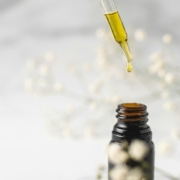Sorting through bogus health claims
Across the United States, people are rising to the historic health needs and challenges posed by coronavirus, with healthcare workers on the frontlines risking their lives, and businesses pivoting to manufacture much-needed medical and protective supplies.
But deep concerns about the health implications—what happens to people who contract the disease from a health and financial perspective—are top of mind for many of us. And a cynical minority has seized on the crisis to employ unscrupulous, and frankly dangerous, marketing tactics to promote bogus products claiming to protect users against the coronavirus or provide relief for those infected—as well as peddling downright phony coronavirus testing products.
“These false claims touting unproven medical benefits are nothing more than craven attempts to take advantage of fearful consumers,” said NCL Executive Director Sally Greenberg.
“Moreover, they spread misinformation among consumers anxiously seeking ways to stay safe and healthy amidst the coronavirus crisis.”
In an op-ed in The Hill published in May, Greenberg noted that a number of CBD manufacturers and stores are falsely promoting unproven medical benefits of CBD products.
A CBD store in Portland, OR, for example, was recently ordered by the office of the state’s attorney general to take down signs claiming that its products could boost immunity against COVID-19.
“False claims such as this are particularly dangerous as consumers anxiously attempt to stay safe and healthy amidst the coronavirus crisis,” said Greenberg. “The need for science-backed treatments is significant and we must ensure products are tested and regulated for safety.”
Contrary to claims being made by CBD marketers that products containing cannabidiol can help those suffering from coronavirus, recent studies have actually found potential harmful side effects of cannabis products on infected coronavirus patients. Aurelius Data cautions the public against the potential harmful side effects that can come from consuming cannabis products with Tetrahydrocannabinol (THC) if a patient is infected with COVID-19. And studies have shown that many unregulated CBD products have been found to contain THC, though the labels may not disclose this.
“In these uncertain times, we urge consumers to continue to take precautions,” said Greenberg. “We urge everyone to follow CDC guidelines for COVID-19, practice safe social distancing, and at the same time avoid THC products and all untested, unregulated CBD products to help keep your family, friends, and communities safe.”
















